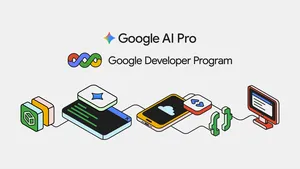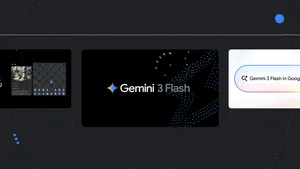3 ways AI can help communities adapt to climate change in Africa

Last week at the inaugural Africa Climate Summit (ACS) in Nairobi, Kenya, we joined African leaders and shared our commitment to advance AI solutions to address the climate crisis. This ACS highlighted Africa’s contributions as an important player in the collective effort to drive climate adaptation and mitigation actions globally.
The continent is disproportionately impacted by the effects of climate change, from devastating floods to food insecurity, and often lacks the infrastructure and resources to manage these risks. The African Union Commissioner for Agriculture, Rural Development, Blue Economy, and Sustainable Development, Josefa Sacko, shared that without urgent action, the continent could face decades of “climate-induced pressure on the continent’s economies, livelihoods and nature.” It is our strong belief that AI can help.
My colleagues and I discussed our AI solutions, how AI can help African communities and businesses and the potential for further innovation with policy makers, entrepreneurs and academic researchers from across the continent. The summit highlighted the importance of collaboration in tackling climate change.
Here are three ways that we are working with governments, organizations and communities to help address climate challenges:
1. A partnership-based approach
We're working collaboratively with national governments, the UN World Meteorological Organization and NGOs to raise awareness of our AI tools that can help support communities affected by natural hazards, such as floods and wildfires, by providing early warnings. Our Flood Hub platform, for example, displays forecasts for riverine floods in 80 countries, 23 of which are in Africa. This is possible due to our global AI model that can even predict the behavior of rivers we’ve never seen before, which is critical in many parts of Africa where historical data is scarce. We will continue to advance the technologies and AI tools, raise awareness of such tools and explore use cases through collaborations.
2. Teams in Africa working for and with communities
Our Google Research team in Africa has researchers both in Accra, Ghana, and Nairobi, Kenya. These teams are at the forefront of driving innovations to address societal challenges in Africa. For example, our team is exploring various ways that AI might be able to help address the growing challenge of food security, from forecasting food insecurity, to increasing food production and managing pests. This work is critical as 70% of Africans rely on agriculture and farming for part of their income. Changing patterns in climate, extreme weather and the economy are having an unprecedented impact on vulnerable populations, while production in Africa must increase to meet the rapid projected population growth.
Members of the Google Ghana Research team with Jeff Dean, Chief Scientist, Google DeepMind and Google Research and Yossi Matias, VP Engineering and Research Google during their visit to the Google AI Research Center in Accra, Ghana.

3. Open-sourced innovation
Data-driven insights can help address climate change and sharing datasets publicly can make a meaningful impact at scale. In June, we published an updated version of our Open Building dataset, an initiative which is led by our Research team in Accra, and started with mapping buildings across the African continent. The latest dataset is now double in size and includes the addition of Latin America, the Caribbean, India and Pakistan, including 1.8 billion building detections, across an inference area of 58M km2 within Africa, South Asia, South-East Asia, and Latin America meaning that it covers most of the developing world. By making this public, we make it available for use by multiple international NGOs working on Sustainable Development Goals and humanitarian efforts. In Uganda, for example, the nonprofit Sunbird AI is using the dataset and working with the Ministry of Energy in Lamwo district to study villages’ electrification needs, and plan potential solutions, such as prioritizing electricity in important areas like commercial centers.
The Open Buildings dataset contains 1.8 billion building detections, across an inference area of 58M km2 within Africa, South Asia, South-East Asia, Latin America and the Caribbean.








